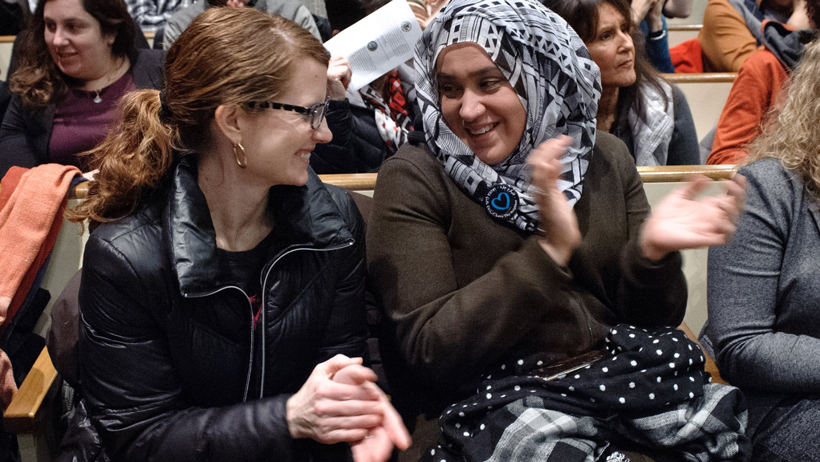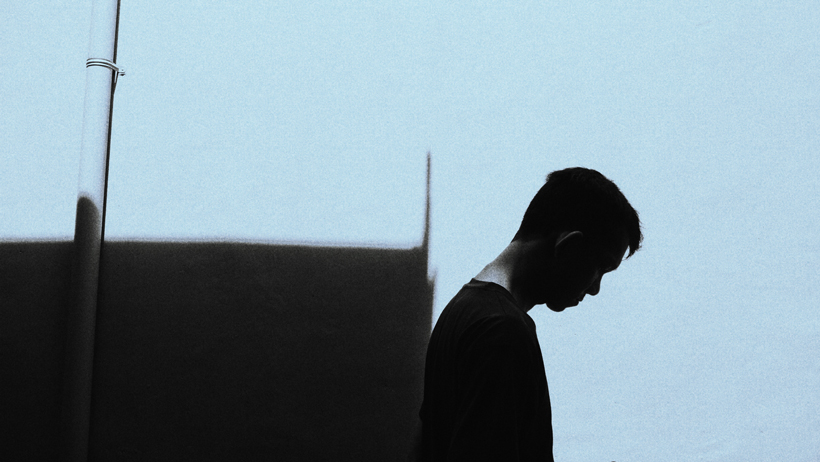When I was new to the staff of Interfaith Youth Core two years ago, I started grabbing one-on-one meetings with my colleagues. Not surprisingly, this practice was a large part of the culture for an organization founded around bridging divides across lines of deep differences.
I had been inspired by interfaith work in my time as a community organizer with Jews United for Justice in Maryland's Montgomery County, just outside of Washington, D.C. In my work I came to understand not only how important it was that Jews organize themselves around issues of social justice affecting their local communities, but also how much more effective we could be when we worked with other religious and non-religious communities around issues relating to safety-net services, immigrants or victims of domestic violence. While Jews had come a long way in gaining equal standing in American society, we were still able to gain more by working in coalition with others than going it alone.
Cut back to Chicago, where I'm drinking Carolina Sweet Honey Tea outside the Argo Tea across the way from my new Muslim colleague, Jenan. Jenan had been with IFYC over 10 years and worked on just about every major program in that time.
I took a honey-filled sip of tea as Jenan asked,
"So what do you think of BDS?"
The sweetness turned bitter as I coughed up a small amount of tea from the back of my throat. She was referring to the Boycott, Divestment and Sanctions movement to put international pressure on Israel.
"Oh, so you want to go there right away?"
She did. As difficult of a conversation as this would be, something about the brave space everyone at IFYC seemed to walk through made me feel like I was held and capable of tackling it.
The idea of brave space I learned about from the writing of Micky Scott Bey Jones, who challenged the concept of "safe spaces" by asking whether our spaces could ever truly be safe anymore, instead calling for "brave space" to give us all the courage to move forward.
With than in mind, Jenan and I shared our deeply held and complicated feelings around Israel, Palestine and all the baggage of our respective religious communities, who often find more differences of opinion internally than externally around what's best for this holy land. If nothing else, we agreed that something needed to change.
Working at IFYC, we were also in agreement that change is needed here in America as well. This country has become so visibly and deeply divided. So many lines of identity have been drawn and it feels impossible to reach across them. And the rhetoric of these midterm elections has shown how those identities can be tightly aligned with politics.
More weight has been put on the outcome of these midterm elections than any that I have seen in my lifetime. I am actually less concerned about Tuesday night's outcome than I am about how people will react to that outcome when they wake up Wednesday morning.
In a piece in New York Magazine last fall, Andrew Sullivan suggested that we have taken this political tribalism too far in America because, among other things, it rivals our attachment to the nation as a whole. "One of the great attractions of tribalism is that you don't actually have to think very much. All you need to know on any given subject is which side you're on."
To that end, I suggest two plans for the midterm election for those who are ready and able. One plan should be for Tuesday -- get to the polls and vote, help others do the same. The second plan is for Wednesday. That one's a little harder.
No matter who wins or loses Tuesday, each of us needs a plan for how to move forward in a way that strengthens the fabric of American society, sewing together those truths we hold to be self-evident for all Americans. How can the patchwork quilt of America be sewn together in a way that respects each tribe's place on its square? How do we enter brave space together? It could be reaching out to engage in conversation or perhaps volunteering with someone with whom we don't agree. Any act, no matter how small, only helps to ensure that the entire American experiment doesn't end up ripped, tattered or worse yet, left to the cutting room floor.
In the moment when Jenan and I finished our tea, we agreed to continue meeting and talking together. Eventually, we began meeting for an interfaith chevrutah -- a Hebrew term for when two people come together for study. It comes from the word for friend, chaver. And as friends, Jenan and I would meet over lunch at the office and share each other's sacred texts. True to the spirit of chevrutah, our purpose was not to agree on everything we read or concede any of our own deeply held beliefs. As chevrutah and friends, if we were lucky enough to disagree on something, it brought an even deeper understanding to our own convictions. We didn't find the answer to erasing the divisiveness in the world, but it's the only way to start.


.jpg?n=5660)

.jpg)





.jpg)



